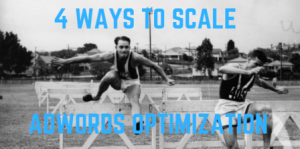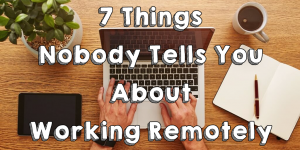Hello and welcome to Modern CEO! I’m Stephanie Mehta, CEO and chief content officer of Mansueto Ventures. Each week this newsletter explores inclusive approaches to leadership drawn from conversations with executives and entrepreneurs, and from the pages of Inc. and Fast Company. If you received this newsletter from a friend, you can sign up to get it yourself every Monday morning.
I’ve never really appreciated influencers as businesspeople. Despite assigning and editing my share of stories about the rise of YouTubers and greenlighting a podcast on the creator economy, I privately thought of these social media darlings as attention-getting solopreneurs rather than company builders—and I definitely didn’t think any of them would have a thing to teach CEOs and executives leading teams and managing complexity.
I was wrong. Harry McCracken’s Fast Company profile of Marques Brownlee, the hugely popular tech reviewer, offers compelling lessons on how to start, grow, and run a company in today’s fast-changing business landscape. To be sure, Brownlee isn’t your average influencer: he has nearly 18 million YouTube subscribers, and his followers include some of the most important tech executives in the world. Earlier this year, Apple CEO Tim Cook gave Brownlee a shout out at an iPhone launch event.
Here are three leadership lessons from Brownlee that I gleaned from McCracken’s reporting:
Don’t be afraid to experiment
Brownlee’s first YouTube video, posted when he was a high school sophomore, was a rough, less-than-perfect specimen. Brownlee probably didn’t think he was doing anything especially brave, but he tried something a little different—at the time there weren’t a lot of young tech reviewers—and though early viewership was sparse, he kept at it and built a loyal following. For me, that first, relatively amateurish video is a great reminder to leaders to tinker with new technologies, ideas, or formats—even if the first effort is unpolished or awkward. A memo by The Atlantic CEO Nicholas Thompson, urging his team to experiment with AI, embodies this spirit: “Lean in,” he writes. “Test these things out.” He acknowledges that AI is far from perfect, but says: “We’ll make cool stuff, and we’ll learn while we do it.”
Credibility still matters
Amid the antics and inanity of much of YouTube, Brownlee’s content stands out for its rigor and trustworthiness. Leaders should take note: at a time when misinformation proliferates, communications experts say businesses should “raise the integrity” of their own content by making sure it is factual and based on sound science or reasoning. In Brownlee’s case, credibility also appears to be profitable. As he tells McCracken, most of his videos and other projects “don’t cost as much to make as we can make back from them.” (In contrast, the story notes, YouTuber Jimmy Donaldson, best known as “Mr. Beast,” says he recently spent $3 million on a video that only made $167,000 in ad revenue.)
Expand (carefully) based on your strengths
Brownlee’s burgeoning media empire now includes the Studio, a YouTube spinoff of his main channel, MKBHD, and a podcast called Waveform, based on conversations he has with Andrew Manganelli, his first employee, and David Imel. Brownlee’s selective approach may reflect his high standards—and, as the face of MKBHD, his own limited bandwidth. But management consultants might look at Brownlee’s expansion effort and call it a path to sustainable, profitable growth.
Where have you found unexpected inspiration? Is there an influencer you’ve come to admire for the quality of their content or their business savvy? Send your improbable role models to stephaniemehta@mansueto.com, and we’ll share your recommendations in a future newsletter.
Read and listen: The business of influence
A Q&A with Marques Brownlee’s CFO (aka his mom)
How influencers can drive international growth at a small brand
Mark Rober is the Willy Wonka of engineering
What will consumers spend to support the creators they love?
(2)











